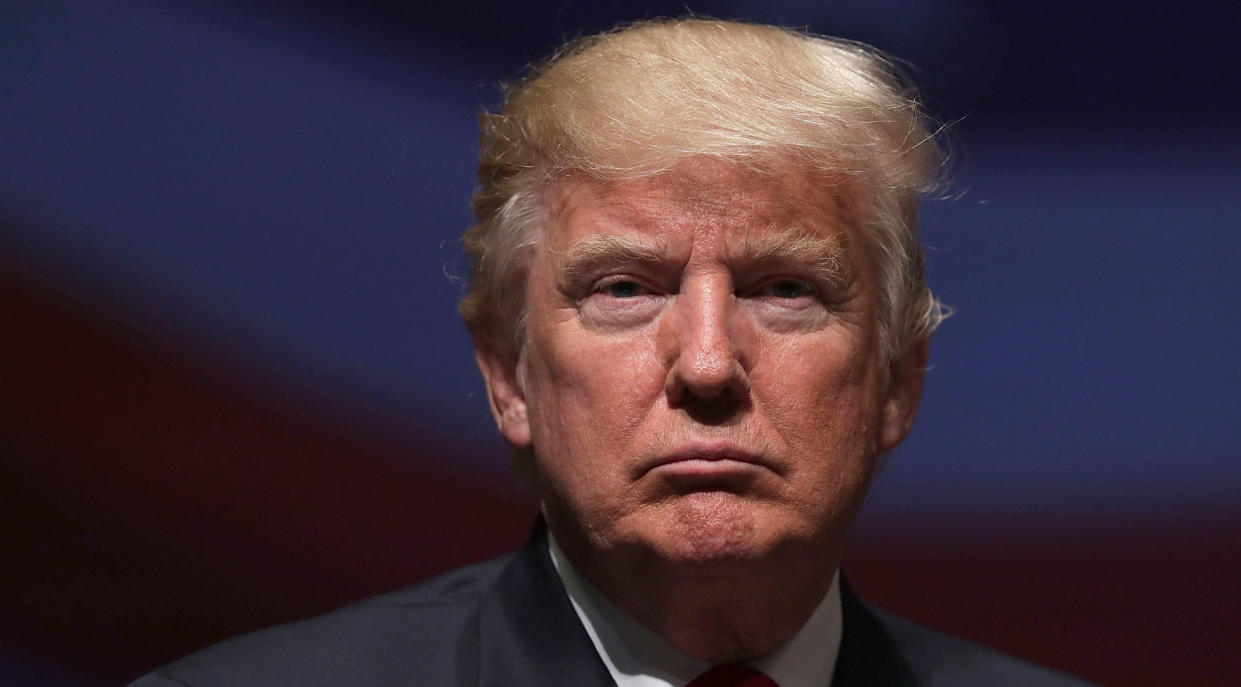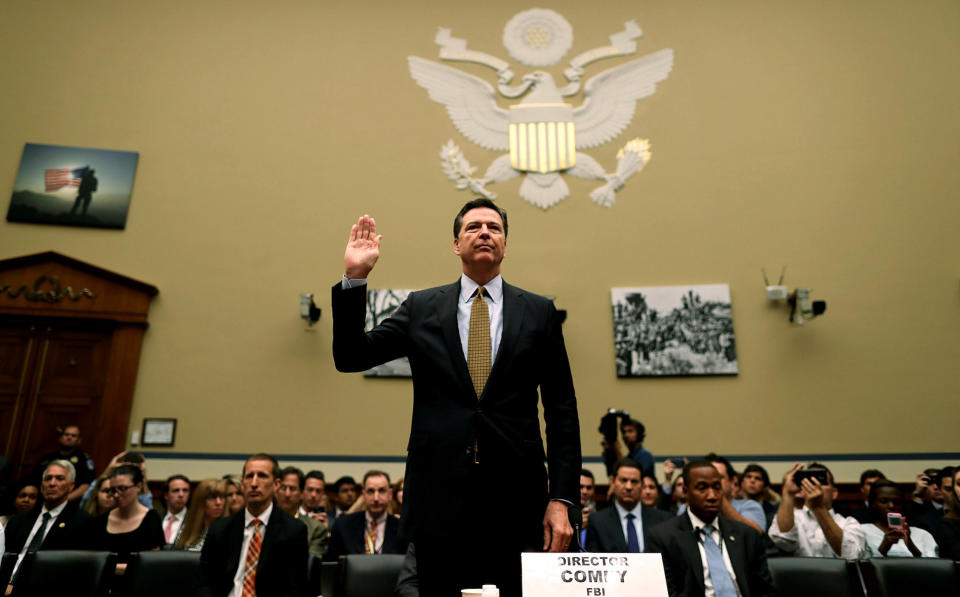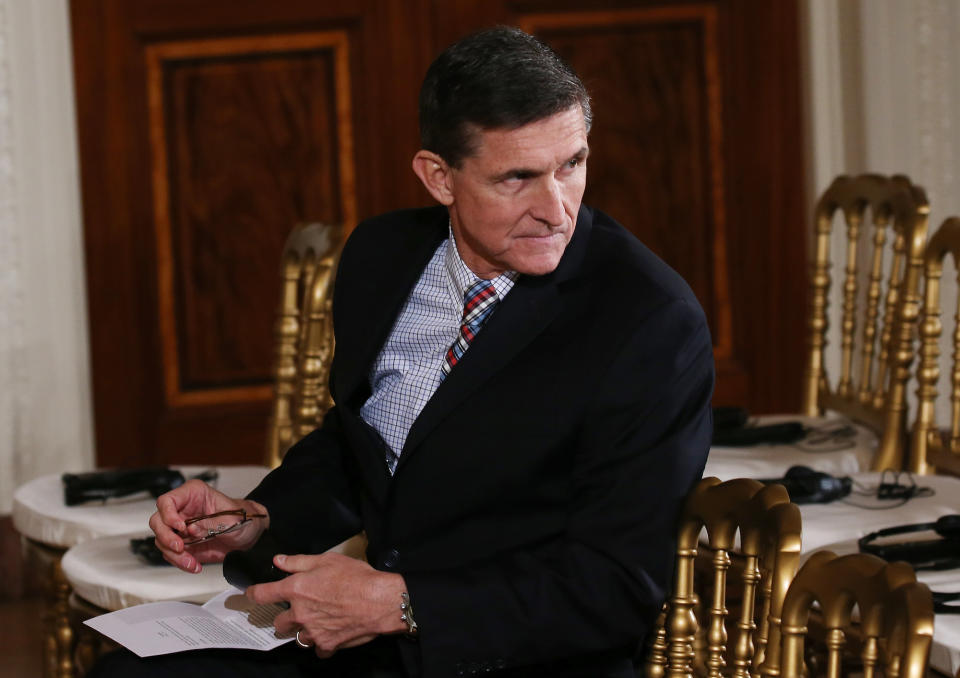Trump's Defense Is Simple: The Rules Do Not Apply

The Third Rule of Trumpodynamics states that if you work for this president long enough, you will eventually find yourself under the bus. The latest to learn that lesson personally is one John Dowd, an outside lawyer for the president who is now claiming he was the one who wrote Trump's boneheaded tweet about Michael Flynn, who on Friday pleaded guilty to lying to the FBI.
I had to fire General Flynn because he lied to the Vice President and the FBI. He has pled guilty to those lies. It is a shame because his actions during the transition were lawful. There was nothing to hide!
- Donald J. Trump (@realDonaldTrump) December 2, 2017
It seems unlikely Dowd would have said "pled," rather than the correct "pleaded," seeing as he's a veteran, high-powered lawyer. For the same reason, it seems unlikely he would instruct the president to say something this dumb and self-incriminating. (Some experts have also suggested it doesn't matter who "wrote" the tweet. By tweeting it, Trump adopted it as his own speech and viewpoint.) But Dowd is nonetheless taking the fall, as someone who is not Trump always must do. The lawyer appeared on the Sunday shows yesterday, and continued his routine in an interview with Axios Monday.
The "President cannot obstruct justice because he is the chief law enforcement officer under [the Constitution's Article II] and has every right to express his view of any case," Dowd claims.
There were first questions about whether Trump obstructed justice back in May, when he fired FBI Director James Comey. Comey testified in June that Trump dismissed a group of administration officials - including Comey's boss, Attorney General Jefferson Beauregard Sessions III - from an Oval Office meeting so he could talk to Comey one-on-one about "letting" the Flynn part of the FBI investigation "go." Comey refused, and eventually Trump fired him.

At the time, the White House claimed it was on recommendation from Sessions and Deputy Attorney General Rod Rosenstein, who slapped their signatures on a laughable letter backing Comey's dismissal on the grounds he had mishandled the investigation into Hillary Clinton's emails. Trump praised Comey's handling of that investigation during the campaign, and moreover, the idea he was concerned with Clinton's treatment at any point does not pass the smell test.
There's good reason for that. Shortly after, in a nationally televised interview with NBC's Lester Holt, Trump admitted he was considering "the Russia thing" when he decided to fire Comey. He also said he would have sacked Comey regardless of the recommendation from his superiors at the Justice Department.
This was also when Trump derided Comey as a "showboat" and a "grandstander," which are not traditional grounds for firing a law enforcement officer. Even before this week's new tweet, Politifact spoke to a number of legal experts in May who saw a compelling case for obstruction of justice. While much of the law is new ground here - not many presidents have faced obstruction allegations - if we assume the president is not above the law, Trump may well have broken it. Here's the lowdown on one statute:
Under this provision, a prosecutor would have to show that through threat or force, Trump obstructed, influenced or impeded a proceeding (or attempted to do so), while he had a "corrupt" mental state. Michael Herz of Cardozo Law School at Yeshiva University said the Supreme Court has never ruled on the narrow question of whether an FBI investigation qualifies as a "proceeding." But he believes a good argument can be made that it is.
Prosecuting Trump under Section 1505 would likely turn on why he removed Comey, Herz said. In other words, did the president act "corruptly" during the firing - defined as "acting with an improper purpose, personally or by influencing another"?
Herz said that while the president has broad authority to fire an FBI director, some grounds for dismissal would be impermissible and amount to obstruction, particularly pertaining to former National Security Adviser Michael Flynn. "Trying to protect a criminal because he is a friend or the investigation will be personally or professional problematic for the obstructor, on the other hand, is pretty clearly an ‘improper purpose,’" he said.

In the end, Dowd's claim rests on the notion that the laws surrounding obstruction of justice do not apply to the president - that he is above the law. This is contrary to the rule of law, a governing principle of our nation that dictates the rules governing our society are applied to everyone equally, no matter who they are or how powerful they become. (While we fall short of this in practice, that is the goal.) It's unusual to refer to the president as the "chief law enforcement officer," which sounds more like the attorney general's job description. This wording, a subtle reorganizing of the text outlining presidential powers in Article II of the Constitution, attempts to shift the federal law enforcement apparatus under the president, break down the traditional wall between the Justice Department and the political actors in the White House, and generally undermine the rule of law.
In the past, Trump has tried to rewrite the history of the FBI to make the case the FBI director should report directly to him, rather than the attorney general. He has also openly lamented the fact that he does not exercise fuller control over the Justice Department, and at times Sessions has acted more like the president's lawyer than what he is - the nation's top law enforcement official. (Trump has also exerted tremendous public pressure on Sessions. On Twitter, he called for DOJ investigations into his political opponents. At one point, he seemed to be trying to force Sessions to resign, expressing anger that Sessions had reused himself from - and therefore could offer Trump little protection from - the Russia probe. With Sessions gone, Trump could have appointed a new attorney general who could better protect him.) These are all part of an attempt to corrupt the justice system by a thousand cuts. It should be no surprise that we've reached this point, where the president's lawyer essentially echoes that infamous line from Richard Nixon in an interview with David Frost:
Nixon resigned before he could be impeached on three charges: abuse of power, contempt of Congress, and obstruction of justice. Part of his impeachable behavior was the Saturday Night Massacre, when his attorney general and deputy attorney general resigned rather than carry out his order to fire special prosecutor Archibald Cox, who was leading the investigation into Watergate. They considered that an attack on the rule of law and the independence of the Justice Department.
Just to prove these are all a series of excuses from Trump's team, Dowd also claimed the tweet did not constitute an admission of obstruction.
"The tweet did not admit obstruction. That is an ignorant and arrogant assertion."
So the White House line is: The president can't obstruct justice, and by the way he didn't obstruct justice, which is why we felt the need to clarify that he can't. It's important to cover your bases.
It's also unclear how it's "arrogant" to question whether the president just admitted to having committed a crime. It seems far more arrogant for Dowd to express this kind of sanctimonious outrage when citizens of a democracy question their elected political leaders, who, after all, work for them. Then again, Nixon seemed to work himself into a sanctimonious outrage before he declared being the president made you above the law - you know, like a king. With all this on his record already, is there really much doubt Trump would try to engineer the firing of current Special Counsel Robert Mueller, much like Nixon did with Cox?
[editoriallinks id='b7dbdc1e-a60a-4528-b02d-34b828be5a6e'][/editoriallinks]
You Might Also Like

